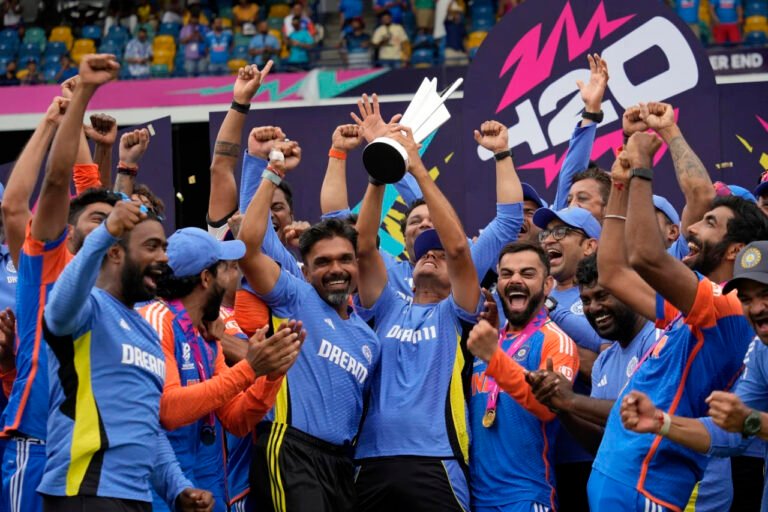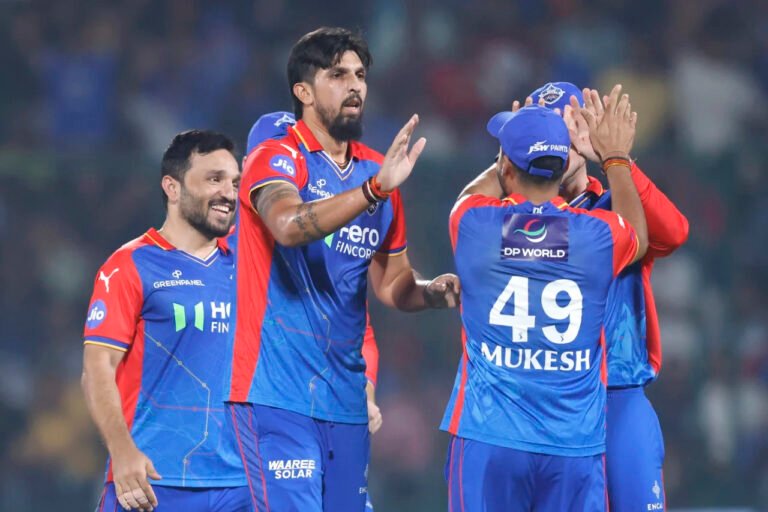Kamran Ghulam’s Debut Century Keeps Pakistan Competitive Against England in 2nd Test
Kamran Ghulam struck a magnificent debut century, on the opening day of the second Test match between Pakistan and England in Multan, sparking much-needed optimism for Pakistani cricket.
By the end of play, Pakistan had amassed a solid 259 for 5, thanks in part to his determined hit of 118. Ghulam’s knock, despite ending shortly before stumps, was crucial in improving his side’s chances following a string of poor performances.

Key Performances and Match Scorecard
Match Analysis
In recent months, Pakistani cricket fans have had very little cause for celebration. However, on the first day of the second Test in Multan, Kamran Ghulam gave them unrestrained excitement by scoring a valiant century in his first Test innings, helping his struggling team win.
Even though Ghulam was dismissed for 118 late in the day by Shoaib Bashir, who was trying to stay aggressive as the game was about to end, his debut efforts helped Pakistan reach 259 for 5, which was not much by the standards England was scoring on this same field the previous week, but it was a start.
Pakistan’s first-innings 556 in the first Test ended up on the losing end of an innings defeat, but Ghulam’s unwavering efforts, combined with a career-best 77 from Saim Ayub and an unusually entrenched 37 not out from Mohammad Rizwan, kept Pakistan on course for a score of 300 or more, which could still be competitive if their spin-heavy attack can capitalize on a pitch that was heavily fed and irrigated by industrial fans during the four days between Tests.
But Pakistan may still be at danger because of the weapons they are unable to use. Even though Jack Leach took two early wickets and has since claimed nine wickets in three innings on this surface to reclaim his position as England’s senior spinner, their greatest threat came from a reverse-swing spell that lasted until mid-afternoon and was masterfully controlled by a three-pronged seam assault.
Strangely, all three—including Ben Stokes, who returned to captain the squad for the first time since tearing his hamstring in August—are from Durham. If Pakistan wants to use similar skills, they will have to rely heavily on its lone fast, Aamer Jamal, after choosing to bench both Shaheen Shah Afridi and Naseem Shah for this match.
Thanks to Ghulam’s efforts, which made him the second-oldest Pakistani to register a debut century at the age of 29, all such concerns can wait for the time being. After a nervous wait in the 90s that had lasted until the evening drinks break, he accomplished the task with a joyous stroke through the leg-side off Joe Root. After serving for more than ten years in Pakistan’s Quaid-e-Azam Trophy, he might have believed that his total of more than 4500 runs at 49 would go unnoticed forever. Nevertheless, a few more moments of delay could not disturb him.
After Leach, having been the first England spinner to strike twice so early in a Test match since Johnny Briggs in 1889, had pitched the ball early following Stokes’ fast assessment of the surface, his innings had started at 19 for 2 in the tenth over. Ghulam’s influence raised the possibility of another collapse akin to Pakistan’s fourth-evening collapse in the opening Test, but he quickly demonstrated his strength of character by demonstrating his experience with the dry conditions and his conviction in the strategies that had ultimately brought him recognition.
After launching a cool six over Leach’s head for his first boundary, he ambled to his first half-century from 104 balls, reaching a milestone that had eluded his better famous countryman, Babar Azam, in the eighteen poor innings that had led to his exclusion.
But after Ghulam had only faced two fast bowling deliveries in his opening 120 overs, the difficulty increased dramatically when Stokes came into the attack in the middle of the day. Stokes produced a catchable height shot through the empty slip cordon with a fat edge in his first over, and shortly afterward, Root had to put on a helmet four yards from the bat to try and make any further chances count.

But the breakthrough came from the opposite direction. Due in large part to his opening partnership with Abdullah Shafique, which at least reached double figures for the first time in nine innings, Ayub’s reputation had taken a hit throughout this series. It didn’t last long, though, as Shan Masood clipped on the rise to Zak Crawley at midwicket for 3 after Leach bowled Shafique for 7 to cut Pakistan to 15 for 1.
After hitting two fifties against Bangladesh last month, Ayub has been a qualified success at the top of Pakistan’s order when playing in isolation. This was his third half-century in four first innings. As teatime drew near and England started talking about the ball, Matthew Potts used his outside edge to threaten with a series of hooping outswingers over the wicket. However, Stokes responded with a solid shove through the line at a very stupid mid-off (168 for 3).
After tea, the ever-enthusiastic Brydon Carse roughed up Saud Shakeel with a superb short ball before finding his edge for four with an even better delivery that fizzed through to Jamie Smith behind the stumps at 140 km/h (87 mph). Had Ben Duckett clutched to a loose slap from Ghulam on 79, when he decided to take the attack to the returning Leach and nearly paid the price at mid-on, England’s position may have been even better.
After Carse and Stokes’ morning session, the effectiveness of Stokes’ economy with his seamers was demonstrated in the evening when Potts took over and almost ended the innings by keeping Rizwan under pressure for 19 deliveries without a wicket. Replays revealed that the ball had brushed the splice of his bat, but England chose not to utilize a review when his first delivery to Rizwan, who was on 6 at the time, flew past the outside edge and into Smith’s gloves.
Even though he had once again been the weaker link in the attack, Bashir responded with a crucial strike late in the day, demonstrating that England‘s efforts were deserving of another breakthrough before the conclusion. With the second new ball, he cut the top of leg off a good-length pitch that eluded Ghulam’s worn-out challenge and created a crucial opening that might yet prove to be the difference in Pakistan’s pursuit of a respectable first innings.






